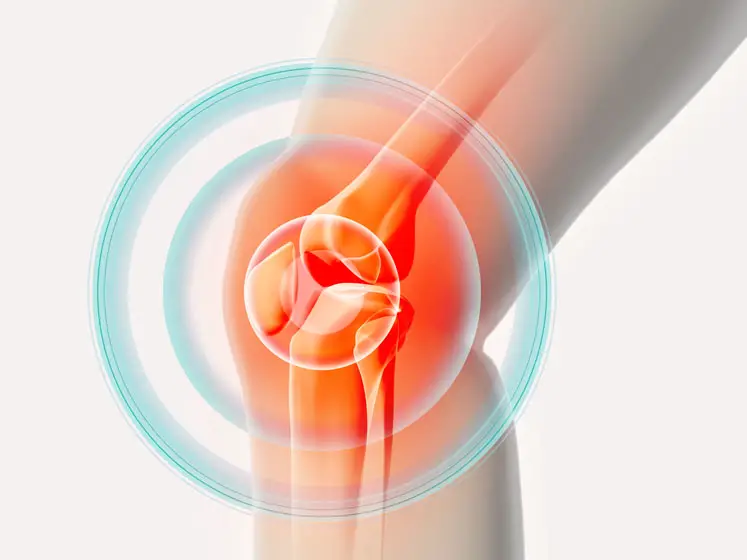Maintaining healthy bones and joints is essential for living an active, pain-free life. Whether you’re in your 20s or your 60s, taking care of your musculoskeletal system plays a vital role in your overall wellness. As we age, our bones lose density and our joints may start to wear down, leading to issues such as arthritis, osteoporosis, and limited mobility. The good news? With proactive habits and a healthy lifestyle, you can strengthen your bones and keep your joints supple for years to come.
This guide covers everything you need to know about bone and joint care—from essential nutrients and daily practices to exercises, prevention tips, and when to seek medical help.
🥦 Why Bone and Joint Health Matters
Bones give our body structure and protect vital organs, while joints allow for movement and flexibility. As we grow older or live sedentary lifestyles, our bones can become brittle, and our joints inflamed or stiff. Conditions like osteoporosis, arthritis, joint degeneration, and injuries can reduce quality of life, independence, and even cause chronic pain.
According to the World Health Organization, osteoporosis affects an estimated 200 million women globally. Early prevention and care can greatly reduce your risk.
🍳 Key Nutrients for Healthy Bones and Joints
-
Calcium
Calcium is the building block of bone. It’s recommended to get around 1000-1200 mg of calcium daily, either through diet or supplements. Foods rich in calcium include:-
Dairy products like milk, cheese, and yogurt
-
Leafy greens like spinach and kale
-
Fortified cereals and orange juice
-
-
Vitamin D
This helps your body absorb calcium efficiently. Sunshine exposure is a great source, but you can also find vitamin D in:-
Fatty fish like salmon and mackerel
-
Egg yolks
-
Fortified dairy and plant-based milk
-
-
Magnesium and Phosphorus
Both minerals support bone structure and cell function. Nuts, seeds, whole grains, and legumes are great options. -
Omega-3 Fatty Acids
Found in flaxseeds, chia seeds, and fish, omega-3s help reduce joint inflammation and stiffness. -
Collagen
Collagen supports joint flexibility and cartilage health. Bone broth, collagen supplements, and protein-rich diets help maintain it.
🧘♀️ Daily Habits That Strengthen Bones and Joints
-
Regular Exercise
-
Weight-bearing exercises like walking, dancing, or hiking improve bone density.
-
Strength training builds muscle and enhances bone strength.
-
Stretching and flexibility routines such as yoga or Pilates maintain joint mobility and reduce stiffness.
-
-
Maintain a Healthy Weight
Extra weight puts unnecessary strain on joints, especially knees, hips, and the lower back. Losing even a small percentage of body weight can significantly reduce joint pain. -
Stay Hydrated
Water is essential for joint lubrication. Dehydration can lead to joint stiffness and increased friction. -
Avoid Smoking and Excess Alcohol
Smoking decreases bone mass and slows healing. Excess alcohol affects calcium absorption and weakens bones.
🛡️ Preventing Joint Pain and Bone Loss
-
Practice Good Posture
Avoid slouching, which strains the spine and joints. Use ergonomic chairs and workstations. -
Lift Objects Correctly
Bend your knees, keep the object close to your body, and lift using your legs—not your back. -
Use Proper Footwear
Shoes with good arch support and cushioning reduce stress on knees and hips. -
Balance Activities with Rest
Overexertion can damage joints. Give your body time to recover, especially after high-impact activities.
🏥 When to Seek Medical Help
If you experience persistent joint pain, swelling, stiffness, or reduced range of motion, consult a doctor. Early diagnosis of conditions like arthritis or osteoporosis can help prevent further damage. You might need:
-
Bone density scans
-
Blood tests for inflammation markers
-
Physical therapy
-
Medication or supplements
👶 Bone and Joint Care at Every Age
👦 Children & Teens
Focus on building strong bones through milk, outdoor play (sunlight), and activity.
👩 Adults (20–40)
Start preventive habits early—nutrient-rich diet, weight training, and posture awareness.
👴 Older Adults (40+)
Increase calcium and vitamin D intake, avoid high-risk falls, and incorporate low-impact exercises like swimming.
💡 Quick Tips for Stronger Bones and Joints
-
Add chia seeds to your smoothie for an omega-3 boost.
-
Walk barefoot at home to improve joint alignment and foot strength.
-
Replace sugary drinks with calcium-fortified plant milk.
-
Use resistance bands at home for light strength training.
-
Take short stretch breaks if you sit for long hours.
❤️ Final Thoughts
Caring for your bones and joints isn’t just about avoiding pain—it’s about investing in a future where you can move freely, travel, dance, garden, or chase your kids without hesitation. Make small but powerful changes today to build a stronger, healthier tomorrow.











Leave a Reply